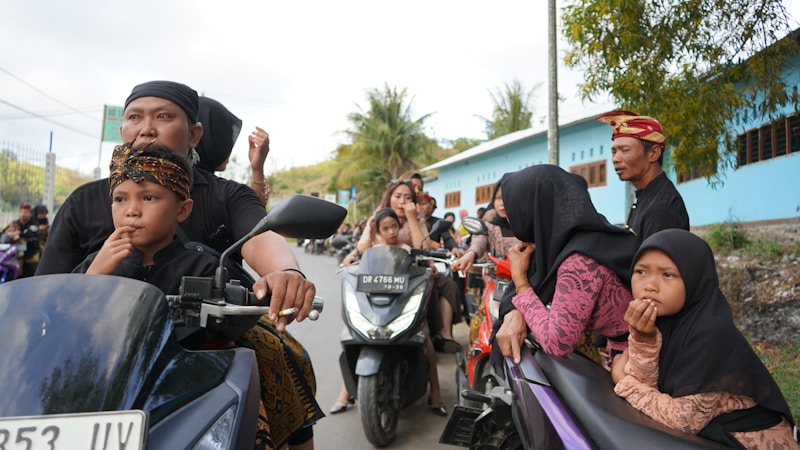Exploring the Richness of Traditional Wedding Customs Around the World
Weddings in every culture are a celebration of love and commitment, often accompanied by unique traditions that have been passed down through generations. In this article, we will delve into the fascinating world of traditional wedding customs, exploring what makes them special, and how they reflect the values and beliefs of different societies. From the vibrant ceremonies in India to the elegant formalities in Western cultures, let's take a journey through time and space to uncover these cherished practices.
The Importance of Traditional Wedding Customs
Traditional wedding customs not only add color and vibrancy to the ceremonies, but they also play a crucial role in maintaining cultural identity. These rituals often symbolize key aspects of life such as fertility, prosperity, and the unbreakable bond between partners. Understanding these customs provides insight into the emotions and significance behind the wedding events, enhancing the overall experience for participants and guests alike.
A Glimpse into Diverse Wedding Traditions
While every culture holds its unique practices, many traditional wedding customs share common themes. Below is a table summarizing some remarkable wedding traditions from different regions:
| Culture | Traditional Custom | Significance |
| Indian | Applying Mehndi (Henna) | Symbolizes joy and good luck for the bride |
| Chinese | Tea Ceremony | Represents respect for family and ancestors |
| Scottish | Handfasting | Represents the bond of marriage through physical ties |
| Mexican | Ceremonial Lasso | Symbolizes unity and the couple's commitment |
| Jewish | Breaking of the Glass | Represents the destruction of the Temple in Jerusalem, emphasizing the fragility of relationships |
In-Depth Look at Specific Cultures
Indian Weddings: A Festival of Color
Indian weddings are known for their grandeur and elaborate rituals. One prominent custom is the Mehndi Ceremony, where intricate henna designs are applied to the bride's hands and feet. This tradition is believed to bring good luck and symbolizes the bride's emotional well-being on her special day. Following this, there is the vibrant Sangeet, where family and friends gather for music and dance, enhancing the joyous atmosphere of the upcoming celebration.
Chinese Weddings: A Legacy of Respect
The Tea Ceremony is a central feature of Chinese weddings, where the couple serves tea to their elders. This custom not only signifies respect for family but also acknowledges the importance of ancestry in Chinese culture. The act of serving tea is often accompanied by the exchange of gifts, further solidifying familial bonds.
Scottish Weddings: From Tradition to Modernity
One of the most enchanting Scottish wedding customs is Handfasting, where the couple's hands are tied together with a cord or ribbon. This ancient ritual symbolizes their union and commitment, and it has been experiencing a revival in modern ceremonies. Many couples opt to incorporate this practice into their vows to add a personal touch to their wedding day.
Mexican Weddings: A Celebration of Unity
In Mexican culture, the Ceremonial Lasso is often used. After exchanging vows, the couple is draped with a lasso, usually a large rosary or cord, symbolizing their unity and the responsibilities they share in marriage. This tradition emphasizes the inseparability of the couple as they embark on a new journey together.
Jewish Weddings: Rituals of Remembrance
Jewish weddings feature the Breaking of the Glass ceremony, where the groom crushes a glass underfoot. This act serves as a reminder of the fragility of relationships and the bittersweet nature of life. Guests often shout, "Mazel Tov!" to celebrate the couple's joy, reinforcing community support and happiness.
How to Incorporate Traditional Customs into Modern weddings
With the blending of cultures and the rise of destination weddings, many couples are seeking ways to incorporate traditional wedding customs into their modern ceremonies. Here are several suggestions:
- Research Your Heritage: Take the time to explore your roots and understand the wedding customs that resonate with your family's history.
- Create Your Fusion: Combine elements from different traditions that are meaningful to you and your partner. This not only personalizes your wedding day but also respects both cultures.
- Enlist Family Involvement: Involving family members in traditional rituals can strengthen familial ties and make the ceremony more meaningful.
- Capture Traditions through Photography: Documenting these specific customs can create beautiful memories and a deeper appreciation of your cultural background.
The Global Influence of Traditional Wedding Customs
As people worldwide become more interconnected, the influence of traditional wedding customs is increasingly apparent. Couples might incorporate rituals from different cultures, leading to a beautiful fusion of traditions. This not only enriches the wedding experience but also fosters understanding and appreciation of diverse customs.
Common Questions About Traditional Wedding Customs
- What are some popular wedding customs in Western culture? Western weddings often include exchanging vows, wearing a white dress, and tossing a bouquet. Each of these elements holds significance and has its own history.
- Are traditional wedding customs important for modern couples? Yes, many modern couples find that incorporating traditional customs adds depth and meaning to their wedding ceremonies.
- How can couples choose which customs to include? Couples should consider their backgrounds, personal beliefs, and what resonates with their values when selecting traditions for their wedding.
Conclusion
Traditional wedding customs are more than just rituals; they are representations of love, respect, and history that connect us to our roots. By integrating these customs into Modern weddings, couples can honor their heritage while creating a unique celebration that reflects their identity. Whether you opt for the colorful celebrations of Indian weddings or the poignant customs of Jewish ceremonies, understanding and embracing traditional wedding customs can bring an added layer of significance and joy to your special day.
As you plan your wedding, take time to explore and embrace these treasured traditions. Remember, a wedding is a personal journey, and each custom you choose to incorporate will tell a story of love and connection that lasts a lifetime.
